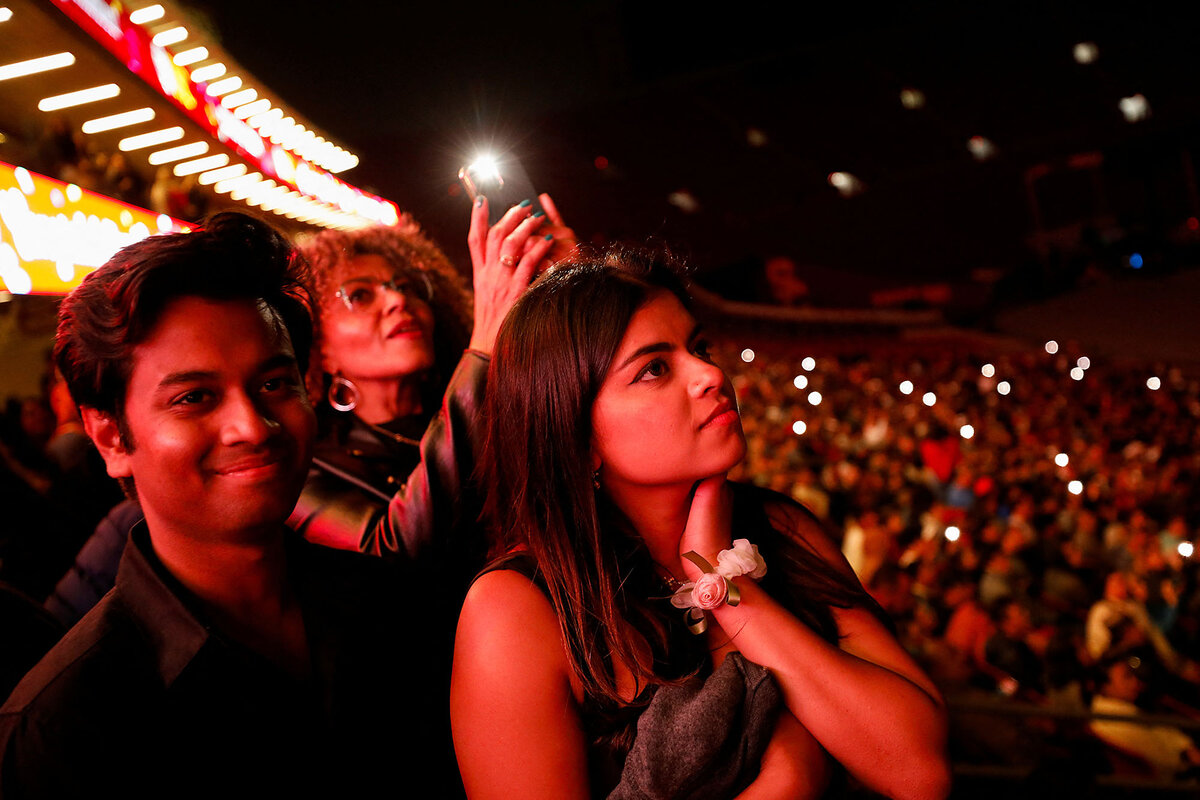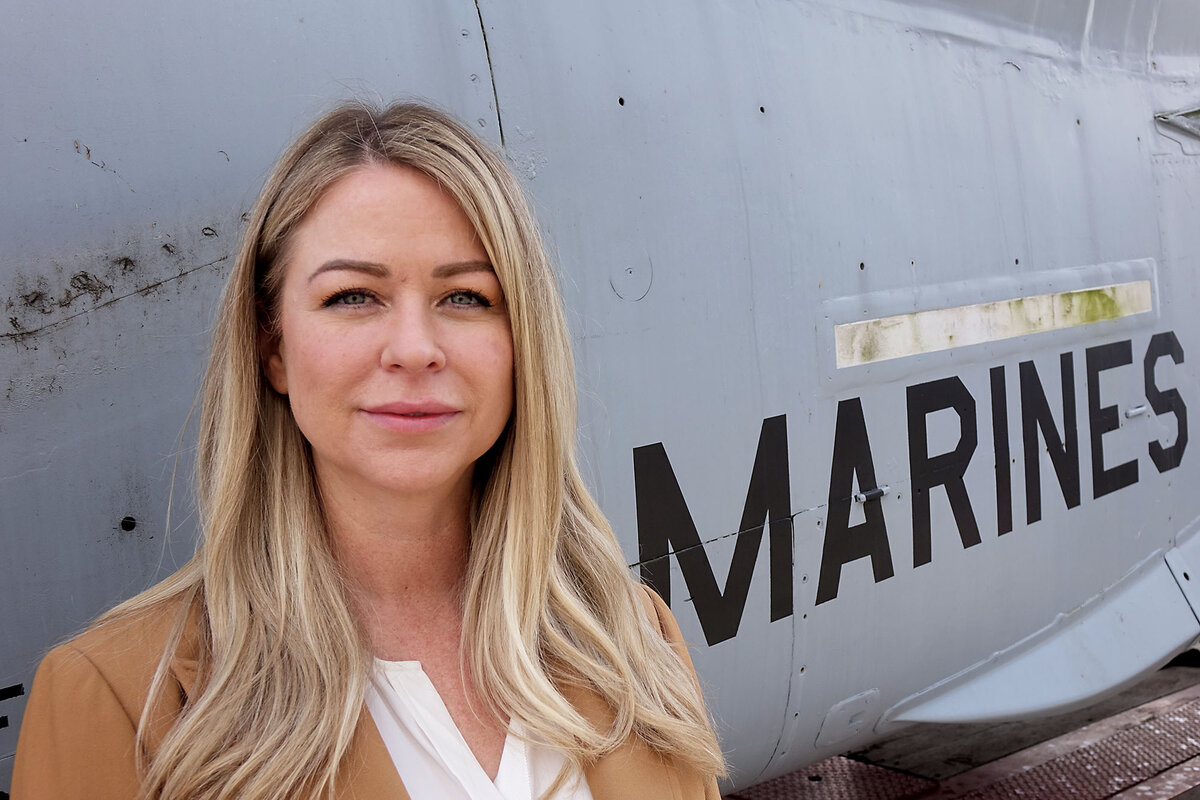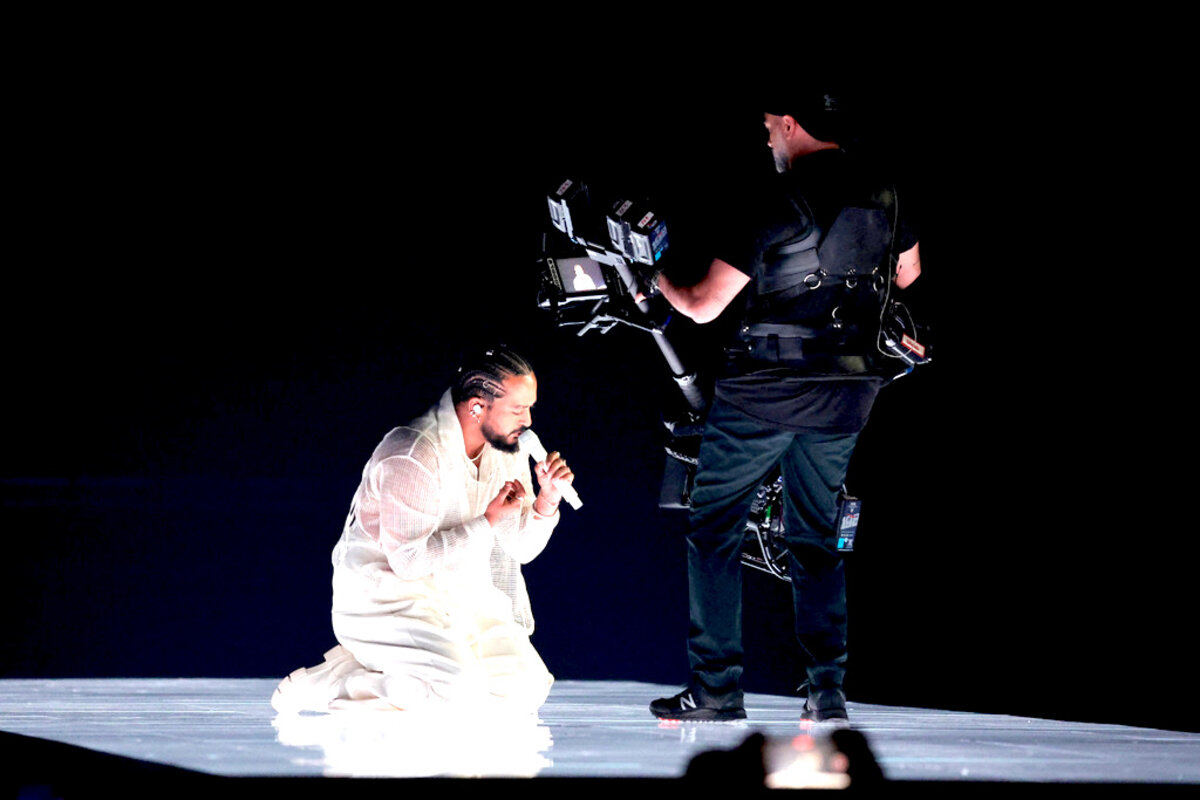From pandemic to protests, these college seniors have faced unusual challenges. Many long for community – and have learned something about building it.

Why is ���Ǵ��� Science in our name?
Our name is about honesty. The Monitor is owned by The First Church of Christ, Scientist, and we’ve always been transparent about that.
The church publishes the Monitor because it sees good journalism as vital to progress in the world. Since 1908, we’ve aimed “to injure no man, but to bless all mankind,” as our founder, Mary Baker Eddy, put it.
Here, you’ll find award-winning journalism not driven by commercial influences – a news organization that takes seriously its mission to uplift the world by seeking solutions and finding reasons for credible hope.
Explore values journalism About usAlready a subscriber? Log in
Already have a subscription? Activate it
Ready for constructive world news?
Join the Monitor community.
SubscribeMonitor Daily Podcast
- Follow us:
 Mark Sappenfield
Mark Sappenfield
When does responsibility end? That’s a question in my story today about colleagues who worked with the Monitor in Afghanistan and are still there, at great risk.
America’s time in Afghanistan involved many difficult questions with no easy answers. But responsibility is, at its core, a matter of trust. We put our trust in these colleagues to protect us. Can we now protect them? We continue to work to bring them to safety, and today’s article is an attempt to ensure they are not forgotten. But the need remains, as does the hope of an answer.
Already a subscriber? Log in
Help fund Monitor journalism for $11/ month
Monitor journalism changes lives because we open that too-small box that most people think they live in. We believe news can and should expand a sense of identity and possibility beyond narrow conventional expectations.
Our work isn't possible without your support.
Today’s stories
And why we wrote them
( 6 min. read )
Today’s news briefs
• Battles near Rafah: A United Nations official says heavy fighting between Israeli troops and Palestinian militants on the outskirts of the southern Gaza city of Rafah has left crucial nearby aid crossings inaccessible and caused more than 100,000 people to flee north.
• Confederate names decision: The education board for Shenandoah County, Virginia, votes to restore Confederate generals’ names to two public schools, becoming the first to do so in the United States.
• Video of Black airman’s killing: A Florida county sheriff released body-camera video of a deputy fatally shooting a Black airman holding a handgun in his apartment.
• U.N. vote on Palestinian membership: The United Nations General Assembly has voted 143-9 to grant new “rights and privileges” to Palestinians and has called on the Security Council to favorably reconsider their request to become a member.
• U.S. asylum shift: A new U.S. asylum change aims to more quickly reject asylum-seekers caught illegally crossing the U.S.-Mexico border if they pose certain criminal and national security concerns.
( 7 min. read )
Afghan colleagues who helped the Monitor report in Afghanistan for 20 years put their trust in us and in the United States. Now, some still can’t get out. They’re hoping something can change.
Podcast
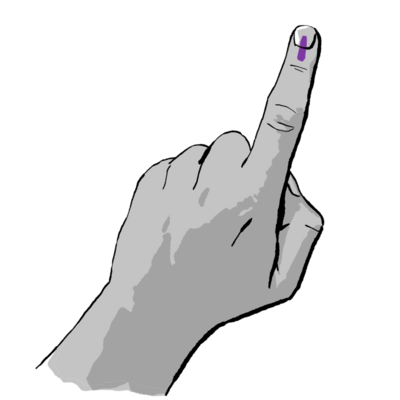
In India’s election, a towering test for democracy – and our reporter
Covering an election in a sprawling nation of 1.4 billion people naturally comes with logistical hurdles. Finding a way to frame it through the lens of a universal value – trust – adds to the challenge. Our India correspondent joins his editor on our podcast to explain.
Looking for Trust as India Votes
( 5 min. read )
For a long time, Marine aviation was a man’s job. This retired helicopter pilot aspires to be the role model she didn’t have two decades ago.
The Monitor's View
( 2 min. read )
In April, French President Emmanuel Macron described Europe as “a continent-world that thinks about its universality.” Perhaps he would include thinking about singing, that most universal of languages.
On Saturday night, an audience of more than 150 million people – larger than the Super Bowl – is expected to watch performers from 26 countries in the Grand Final of the Eurovision Song Contest. The event, now in its 68th year, will again shape a tighter European identity that honors the singing talent from individual countries, most of them in the European Union.
The “universal” in Eurovision lies in its democratic and inclusive nature. Viewers, along with an expert jury, get to vote on who wins. And the event’s organizer, the European Broadcasting Union, is quite open about its struggles to welcome new countries while keeping the musical competition as free of geopolitics as possible.
This year hasn’t been easy. Israel’s contestant, Eden Golan, was asked to revise her song to avoid an allusion to the Hamas attack last October. But organizers rejected pleas to ban her. As a result, protesters are descending on the Swedish city of Malmö, the site of this year’s contest. (Sweden put Eurovision on the global map in 1974 when ABBA won with “Waterloo.” This year, it may be known for upholding the freedom to protest.)
Eurovision has become a mirror for the values that the EU wants to spread to prevent ethnic-based wars like World War II. For many of the bloc’s newest members, the key value is freedom, especially freedom of expression and assembly. After the former Soviet state of Estonia won the contest in 2001, its then-leader said, “We are no longer knocking at Europe’s door. We are walking through it singing.”
In June, more than 400 million EU citizens will elect a new European Parliament. That contest, even if it does help cement EU values in governance, has so far drawn less interest than the Continent’s annual celebration of original, three-minute pop songs – and the democratic voting behind it. The world’s largest and longest-running live music contest is not just entertainment. It is central to the European project, one universal note of song at a time.
A ���Ǵ��� Science Perspective
Each weekday, the Monitor includes one clearly labeled religious article offering spiritual insight on contemporary issues, including the news. The publication – in its various forms – is produced for anyone who cares about the progress of the human endeavor around the world and seeks news reported with compassion, intelligence, and an essentially constructive lens. For many, that caring has religious roots. For many, it does not. The Monitor has always embraced both audiences. The Monitor is owned by a church – The First Church of Christ, Scientist, in Boston – whose founder was concerned with both the state of the world and the quality of available news.
( 3 min. read )
The love we receive from God is boundless, and as we understand this fact, we find it expressed in our lives.
Viewfinder
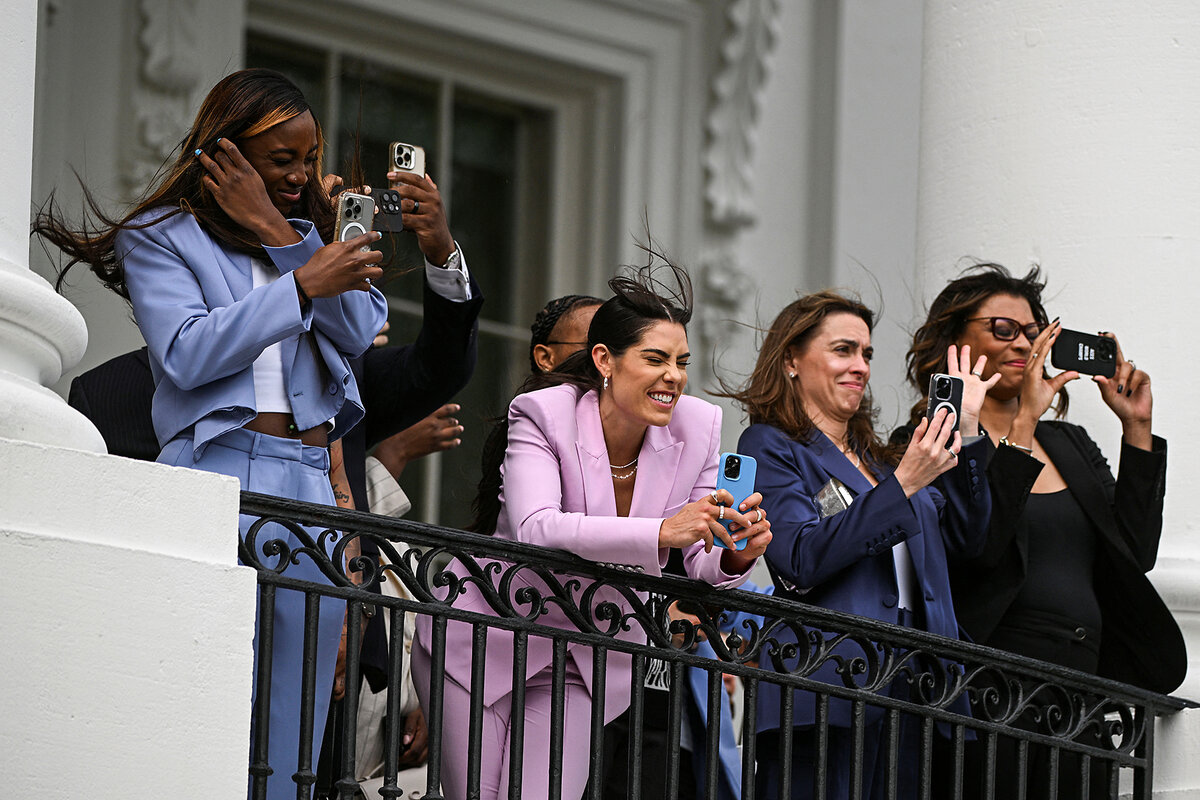
A look ahead
Thank you for joining us before starting your weekend. Next week, we’ll be on the news with several stories about how Israel and Gaza are viewing the events of the past weeks. But we’ll also take a fun look at how “The Thursday Murder Club” book series is helping make sleuths of a certain age trendy again.



